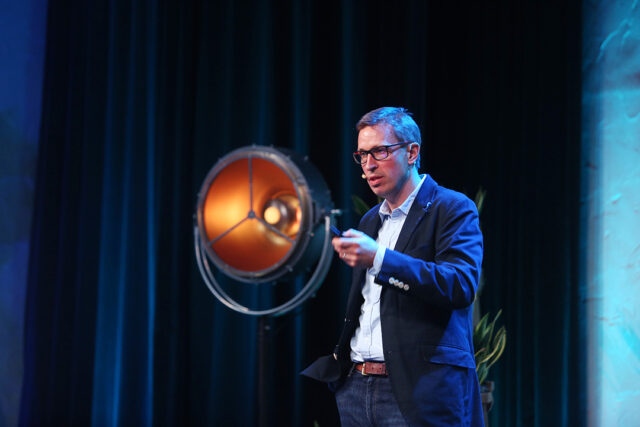The importance of the human element to digital transformation success is well established. Well, it certainly gets talked about a lot.
“Digital transformation must be treated like a continuous, people-first process,” says Bill Rokos, Forbes Technology Council member and CTO of Parsec Automation. No matter how advanced, technology won’t “deliver on ROI if the people charged with wielding it are untrained, unsupported or frustrated.” Rokos is far from the only executive leader touting the essential quality of people to the digitisation process.
In a world of tech-y buzzwords, thought leaders are increasingly returning to the argument that people and the culture they create is the core driver of long-term business success. “Culture is the secret sauce that enables companies to thrive, and it should be at the top of every CEO’s agenda,” argues Gordon Tredgold, motivational speaker and “leadership guru”. The right culture, he explains, attracts top talent, drives employee engagement, builds a strong brand identity, enhances customer experience, and fosters innovation. In short: culture, not technology, is the real driving force behind ongoing digital transformations.
“Successful digital transformations create your business future – a future that will turn out well if you emphasise the human experience,” Andy Main, Global Head of Deloitte Digital, said in a sponsored post on WIRED. Shortly after, Deloitte laid off 1,200 consultants from its US business. It’s not the only organisation to do this.
Gutting the culture
A slew of companies throughout the tech, media, finance, and retail industries slashed their headcounts last year. It appears as though the trend is set to continue into 2024. Google, Meta, Goldman Sachs, Dow, and consulting giants like EY, McKinsey, Accenture, and of course Deloitte all announced major layoffs.
The tech industry is haemorrhaging people, as AI and automation are leveraged to pick up the slack. A small, but very obvious example is Klarna. In 2022, the Swedish fintech dramatically slashed 700 jobs to widespread criticism. Shortly after implementing AI-powered virtual customer service agents, the company boasted in a statement that the AI assistant “is doing the equivalent work of 700 full-time agents.” How convenient.
There’s a contradiction, however. Culture is regarded as the key to operating a successful digitally transformed business in the modern economy. If this is the case, however, aren’t mass layoffs likely to damage company culture?
A new kind of organisation
MaryLou Costa at Raconteur suggests we might be seeing the emergence of “a new kind of organisation.” Automation and a desire to cut overheads are conspiring to cut staffing dramatically. Costa speculates that “growth numbers recorded by freelance hiring platforms and predictions from futurists suggest that it will take the form of a small core of leaders and managers engaging and overseeing teams of skilled operators working on a flexible, third-party basis.”
A widespread transition to a freelance working model could have profound consequences for the future of office and tech work. Companies would, under the current rules, no longer pay tax on behalf of their employees. In places with poor healthcare infrastructure like the US, they would also be free from contributing to employee healthcare.
“This is one of the biggest transformations of the nature of large business in history, fuelled by the advance of generative AI and AI-powered freelancers,” Freelancer.com’s vice-president of managed services, Bryndis Henrikson told Raconteur. She added that she is seeing businesses increasingly structure themselves around a small internal team. This small team of then augmented by a rotating cast of freelance workers—all of it powered by AI. In a future like this, the nature of digital transformation projects would likely look very different. Not only that, but company “culture” might just disappear forever.
- Data & AI
- People & Culture











